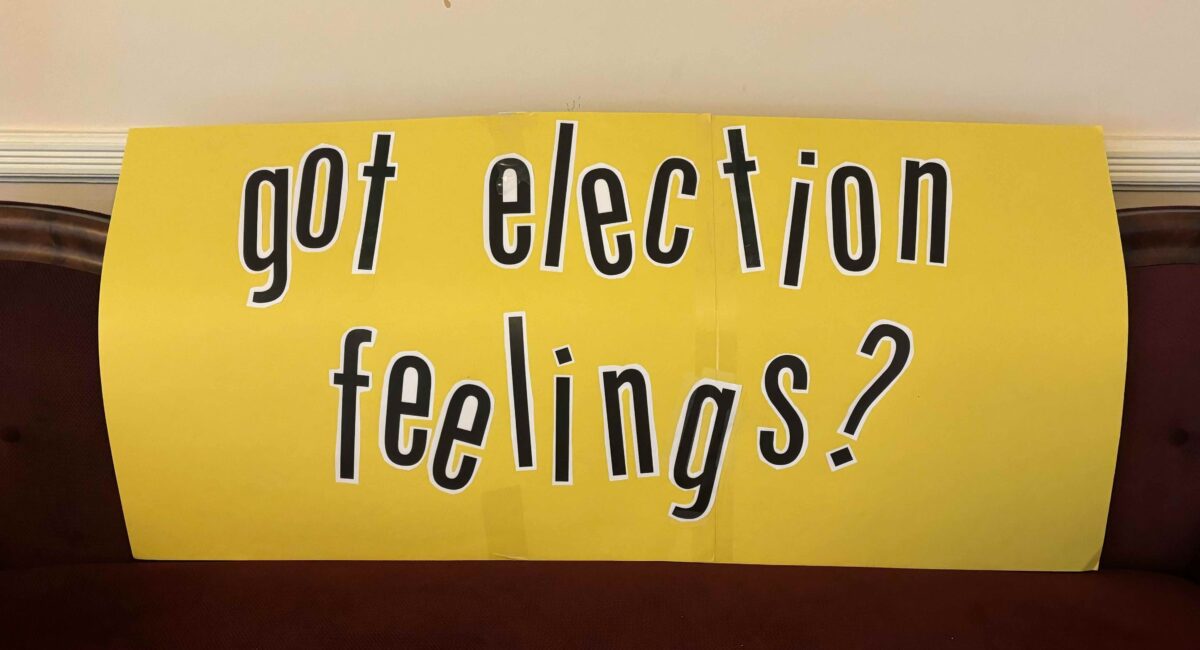The response FROM Our Better Angels:
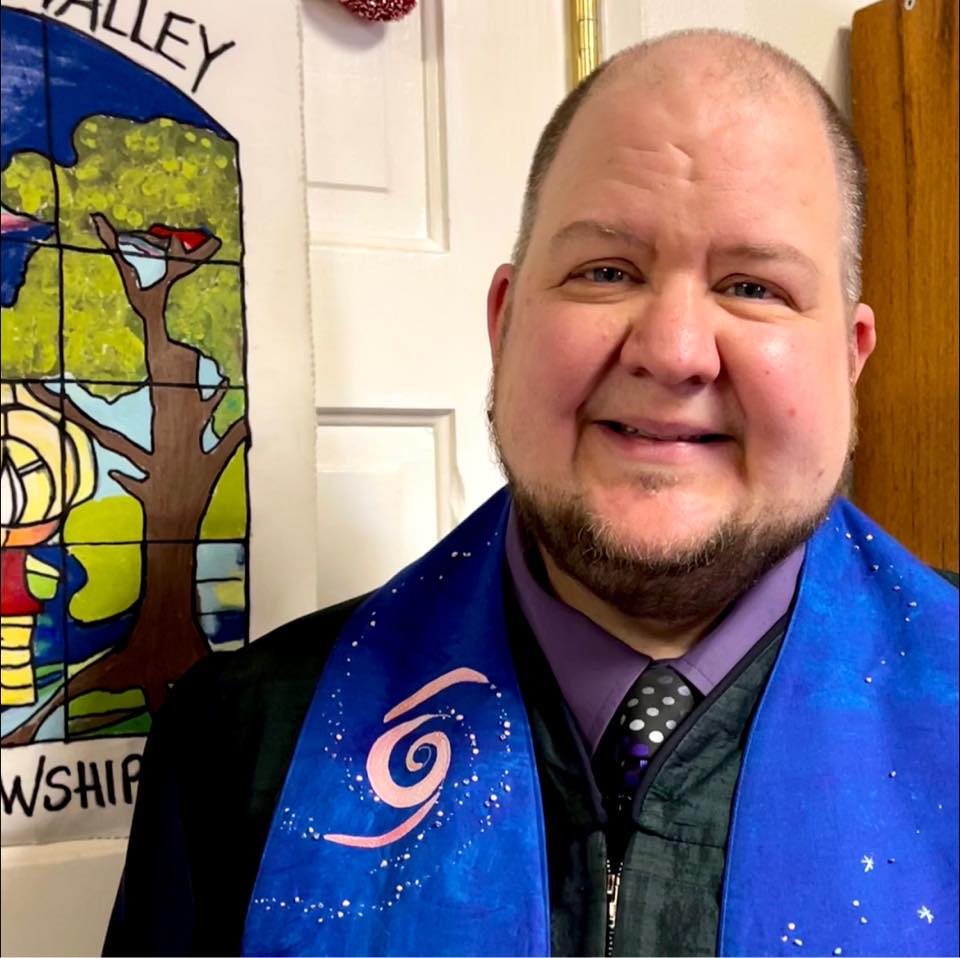
Dear One,
We have received your letter
and we hate to tell you—
not hate so much, but are a bit afraid to say—
we cannot grant your requests as stated,
but can only remind you of familiar things:
First, faith.
Faith in yourself and trust in others.
We know it can be terrifying to be
vulnerable, but only when you
share your softest side will we be able
to break through.
Next, hope.
Hope is not an empty fairy tale.
It is the true story of all the times
human beings like you have
found a way to create the future,
though you didn’t know how.
And of course, Love.
Love that demands you cherish
all people, not just your self and safety.
Love that is not satisfied until every
argument ends abruptly when one
child says, “That hurts.”
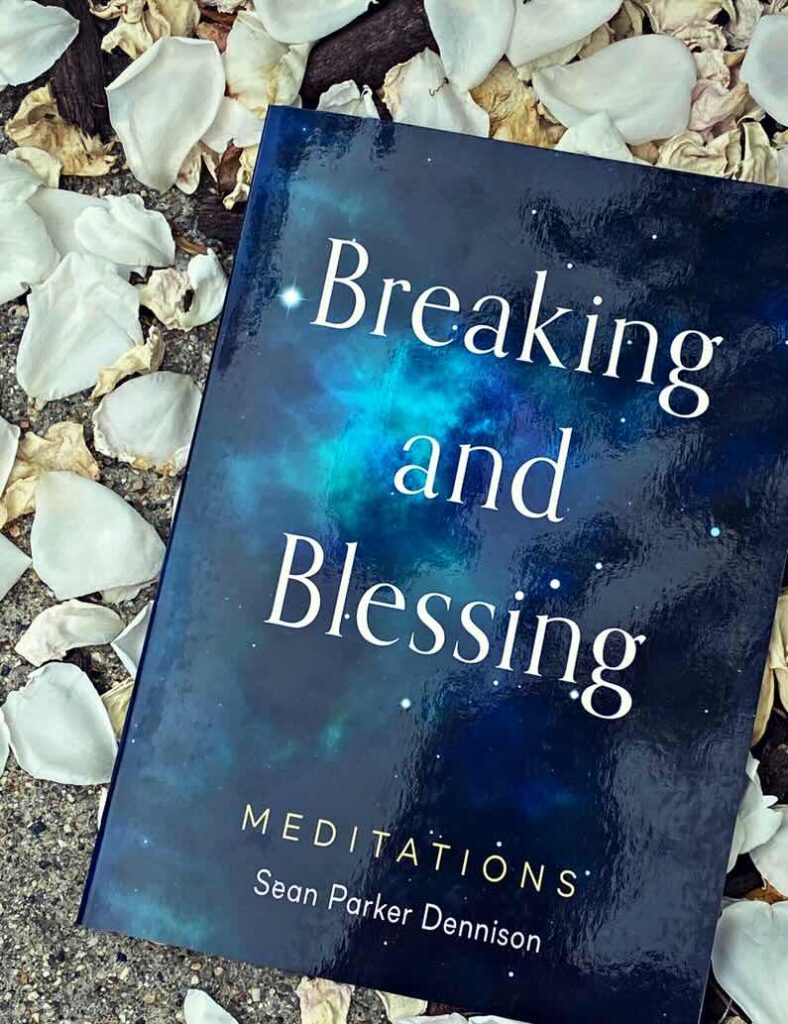
There is so much to learn and relearn.
The world teaches you to be hard,
to negotiate and defend,
to avoid giving too much and to the wrong people.
There are no wrong people.
You also are not wrong, and when you encounter
the poor, the broken, the unhoused and unwelcome,
you are looking, if you pay attention,
at us, calling to you, calling you to
answer your own prayers.
If you want to change the world,
first, be sure you are changing yourself.
Be tender. Be kind. Be at peace.
Be all the things you wish for.
Be your own better self.
It isn’t without cost
But it will be free.
(That was written by the same author as our earlier reading, the Rev. Sean Parker Dennison, from the meditation collection, Blessing and Breaking, published by Skinnerhouse Press.)
It isn’t without cost, but it will be free. And I pray: freeing.
When I first contemplated what kind of service we would need this Sunday before the election, I thought I wanted to bring you only smooth surfaces and solace and softness. I wanted to hand you an easy answer to how to be, as the title of the sermon indicates, shelter for each other.
But I have come to see how problematic that is. How, at times, not always, but at times, it may serve our lesser selves, rather than our Better Angels.
As today approached, I found myself pulled less toward the Soft and more towards more pointed questions. I found myself with questions that circle around fear and risk, how these are different for each of us, how we should and must honor that difference and also press ourselves to grow to face fear, to risk moving from safety to sanctuary.
Sanctuary can have so many meanings. Yes, the space in which we gather on Sunday mornings, whether you are here in person or via the livestream. In the not so distant past, the term “sanctuary” might have meant the provision of protection for immigrants at risk of deportation. More recently, that form of sanctuary has also been used for families with a transgender member leaving not necessarily another country, but another state, seeking safety and full health care. Or it has meant travel support to individuals seeking abortions who can no longer get them in the state where they reside. Yes, in these times, that has become sanctuary.
In the midst of a world that is on fire, given a Burlington that is ~ like so many other American cities ~ experiencing a deep and painful Unraveling, how do we not only long for safety, but risk growing sanctuary?

Lately, I’ve had many reasons to reflect on what safety seems to mean – in the media, in my mind – and what it could mean. Perhaps you have too.
A month ago, there was a call in our congregation’s Facebook group – and in my email – for white allies to show up on behalf of a Black woman, Tyeastia Green, who was calling for justice in how she had been treated as a former City employee, then in the media in the aftermath of a conflicted resignation. Before a City Council meeting, there as a public rally where several Black women posed the question: in all the talk about public or community safety, how does the safety of Black women leaders fit in this City (and frankly, throughout Vermont) where over and over, implicit and explicit white supremacy culture drags them down and tarnishes their reputations.
These Black women were pointedly asking: when we say safety, whose safety do we mean? They were ~ and are ~ asking us to risk being our better selves.
Earlier this fall, we here at First UU had put forward the idea of opening our sanctuary to the wider community on Election Day, recognizing that our Meetinghouse has some to offer the larger community: this calming space. Not only was this an exciting idea, it is one that is actually described in the written policies that govern this congregation. Our safety policy says, and I quote, “in times of local, national or global crisis, FUUSB will strive to offer open access to the Sanctuary when appropriate and safe.”
Yet, both due the Unraveling that is present in Burlington and the non-specific perceived threat of political violence that some of you have named in conversations with me ever since I arrived (and no doubt longer amongst yourselves), there were concerns about safety and a level of risk with which some were uncomfortable. Ultimately, it was decided not to open the sanctuary to the wider community on Election Day.
I was a part of that decision-making process. I honor those among us who express concern around safety. I’m thankful for concerns about how we find a balance between caution and compassion. Frankly, it’s a daily dance that staff – and especially our caretakers – do. We’re not alone – this is true for all the downtown houses of worship.
And yet, I must share with you: I have been troubled. Troubled and worried that in such decisions, we may be letting fear hold more sway over us than our Values and Principles. Troubled and worried not just because I see this in others, but because I see it in myself. I watch the struggle between fear and sanctuary arise within my own heart, the struggle to be my ~ and our ~ better selves.

In our FUUSB world, when it comes to Election Day, though I am not sure that I can say there was no cost, it turns out that our congregation’s solution is win-win. After this morning’s service, there is connection-building programming for the congregation in the community room. You are all invited to attend.
And on Tuesday, instead of opening this bricks and mortar space to the wider community, we are bringing sanctuary to the top of Church Street, setting up a canopy where anyone can come to talk to me ~ and a handful of lay folks who have volunteered ~ about their election feelings. And, if they are so inclined, they can walk away with their own copy of an uplifting poem. And free coffee to boot. There might even be selfies. We’ll be there all afternoon; you are invited to attend that as well.
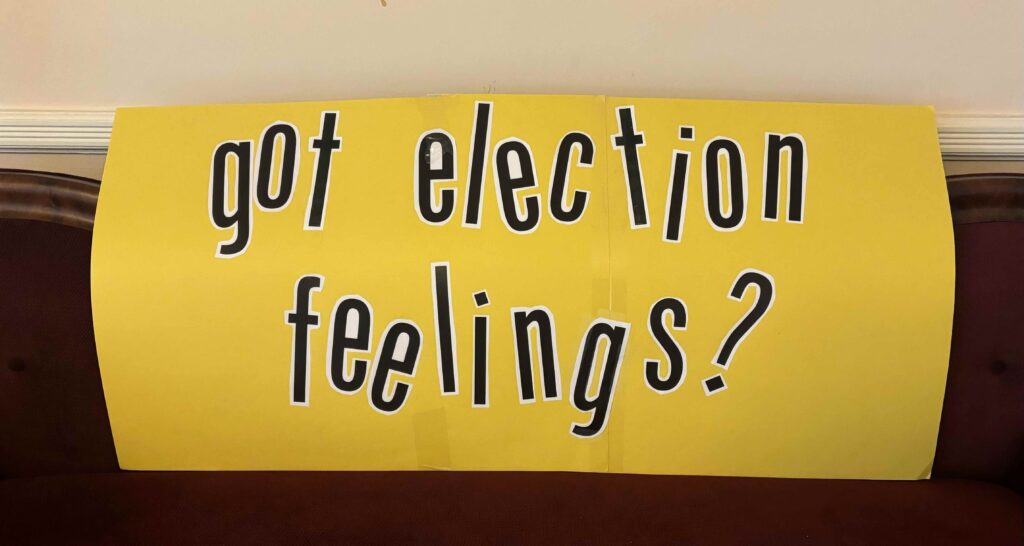
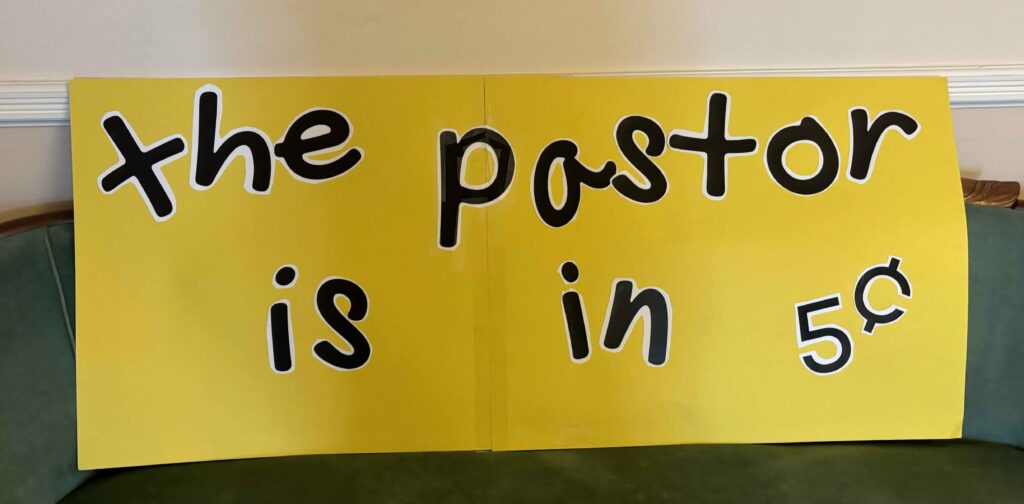
Questions of safety – of how to be shelter to and for each other – and who the each other is – are quintessential questions of who we want to be, not in the theoretical world and less so in the suburban world, but in this world, this one right here, in downtown Burlington, at this point, a quarter century into the 21st century.
I worry that in our personal discernment and in our institutional decision-making, we may not be understanding who we can be at this time, in this place, given what is happening in our world, in our nation, in our community. I am troubled that we may be seeking to secure safety in a world that only offers it to some. I am troubled that we may think, or hope, that living into our values will, as the reading said,
come easily, and with immediate
delivery, a dependable warranty
and at no extra cost.

This fall I have been pairing some of my sermons with art. I made this painting just after I adopted my two kiddos out of the foster care system, one of the most daring decisions I have ever made. Daring, life-defining, meaningful, transformative. I adopted not as a single parent, but an only parent ~ though I always acknowledge, I was never alone: we belonged to two mutual-aid-minded communities, one of which was my home UU congregation in Northampton.
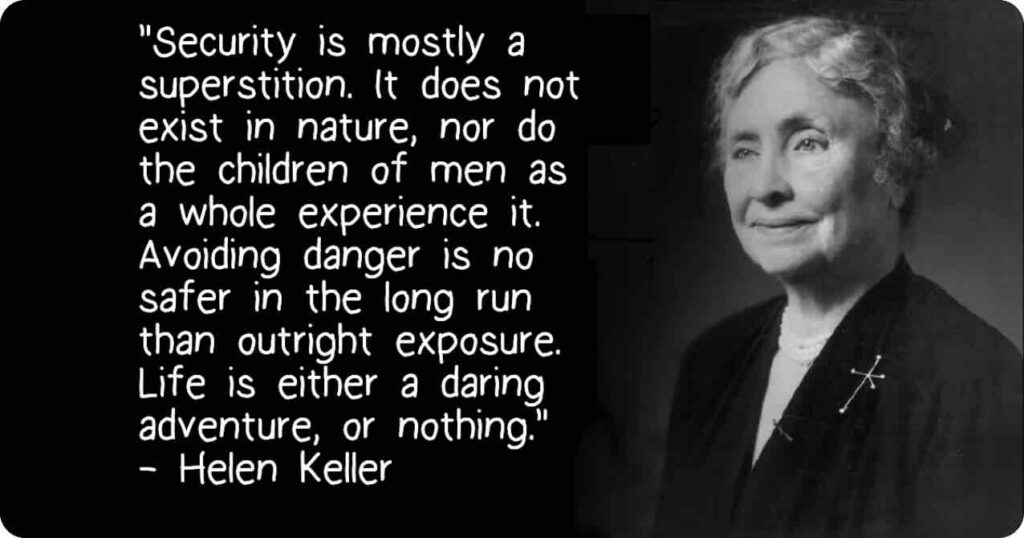
Even with this dated, gender-exclusive language, this quote from Helen Keller spoke to the courage I needed but feared I could not generate ~ courage that too often felt elusive, even as it was essential for our survival as a new family. In those days, twenty years ago, it hung in a central part of our home.
The dictum that Helen Keller articulated so boldly inspires me. And it scares me. Even still.
Scare me? That’s not quite right. It gives me pause. It forces me to see the gap between my initial reaction and the response I want to cultivate in order to be my Better Self. It’s curious how I conflate that with being scared, isn’t it? Curious and important to notice.
Fear, the thing that drives our search for security, can be a tricky companion in our lives. Yes, sometimes it is a helpful indicator that something is wrong. Yes, sometimes we need to listen with acute attention.
And sometimes, fear exaggerates dangers (especially those already sensationalized by biased media sources), making them seem more proximal than they really are; “othering” people who are different than we are; that can make us – yes, even us UUs – vulnerable to strains of authoritarian logic when meshed with the fear of loss of social capital in a changing world.

Our congregation has five visionary ends that help guide us in living into our mission and living into our Unitarian Universalist Values and Principles. Developed over a decade ago, you can read all five on our website. The first of which states that we will use our “power as an organization and faith community to work for social, economic and environmental justice.”
I am worried that in these times when fear is actively fomented by malicious agents from which we are not immune, we may find ourselves attempting to batten down our sense of sanctuary, exchanging it for a false sense of security. How do we not let fear define what safety is and limit what sanctuary can be?
In the days ahead ~ the time between Election Day and knowing the outcome of the vote, as well as between the outcome of the vote and Inauguration Day ~ is a period of time that could be wild and present possibly frightening challenges to our sense of safety, our sense of security, and our sense of sanctuary.
Especially if the Democrats win, for that is when the highest chance of threat arises from those who are not committed to a peaceful transition of power within this ongoing democratic experiment we call the United States.

Friends, whether it is in the wake of this election or as your legacy in this lifetime, I urge you to ask yourself: how will you not let fear hold more sway over your decisions than your Unitarian Universalist Values and Principles?
And in that same spirit, how do you come to know what are you willing to risk? Not for your personal safety, and not for the superstition of security, but to become, ever more truly, sanctuary and shelter for each other. So that you might live a life that is both ordinary and, like Helen Keller suggests, a daring adventure. One that our Better Angels, and our Better Selves, will praise to the cosmos and will reside at the cellular level of your beating heart.
It isn’t without cost
But it will be free.
May it be not only free, but freeing.

